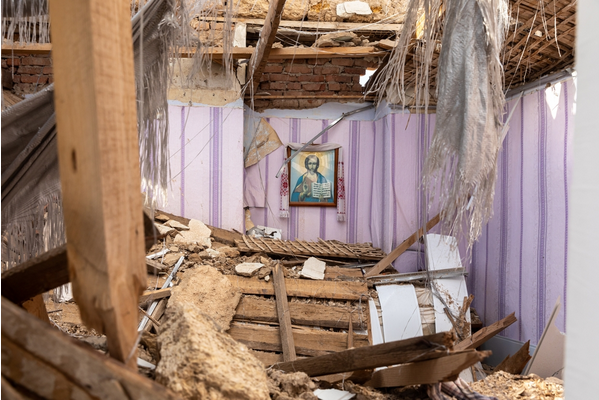


Care Earnings in the United States and 24 European Countries
12 February 2022
Counting Populations to Better Govern?
12 February 2022An Untold Story
It is clear that the great modern political theories are closely intertwined with environmental issues. However, this dimension has been underexplored in their history. In order to fill the gap, Pierre Charbonnier, a CNRS research fellow at the Center for European Studies and Comparative Politics, uncovered these links in his latest book Abundance and freedom. An environmental history of political ideas (septembre 2020, La Découverte).
He shows how modern political ideas were – and remain – steeped in conceptions of the relationship to Earth and the environment, and how they are built around a pact between democracy and growth. The climate crisis is now challenging this link. Interview.
Your book explores the environmental history of political ideas. What do you mean by this?
Pierre Charbonnier:The idea is to uncover legacy conceptual links from a history replete with references on how powers administer, transform, and govern nature. I wanted to show people who care about the environment that political modernity has not forgotten nature. Indeed, all the great political theories, be they socialist or liberal, extensively refer to the link between the political order and the natural order. It therefore behooves us to reestablish the bridges between these two fields in order to understand the ‘programmatic’ relationship between modern societies and nature. This is what I call the environmental history of ideas.
What is the central thesis of your book?
P.C.: My reflection involved identifying what characterises relationships between nature and politics in modern societies where the rule of law and economic development are prevalent. The analyses led me to the conclusion that there is an unbreakable link between abundance and freedom. Through the political emancipation process, we promised ourselves that we would live in a society where we are protected from political arbitrariness. It is through this process that we built our history. At the same time, a goal of emancipating from nature emerged, involving the elimination of deprivation, scarcity, unforeseen events, and material suffering. These two ideas, considered separately, are well known, but their interdependence is not. This is what we call the liberal pact. It is the moment when the political emancipation process was considered to be conditioned on the abolition of the natural contract. It resulted from the political emancipation of a community that allowed human rationality to develop (in particular through the figure of the engineer) by freeing people from the repressive power of the old regime, enabling the attainment of abundance. The mutual reinforcement between abundance and freedom was foundational to the Enlightenment. This coupling is unravelling today due to the difficulties of reimagining political emancipation.
What is the link between the process of securing freedom and community relations with nature?
P.C.: Many theorists during the 17th century and earlier, such as John Locke (a 17th-century English philosopher), saw property rights as essential to modern liberal societies. They closely depended on people’s ability to make nature predictable. In the fifth chapter of his Treatise on Civil Government (1690), John Locke uses the term ‘improvement’ to mean that one is the owner of land when one makes it more productive. This is very prosaic. It is the remodelling of physical territories through agronomic knowledge that involves developing environmental knowledge and investing capital. This constitutes a ticket to enter Western society as a citizen. For example, in the context of imperial expansion, this was the basis for Western societies’ confiscation of land from American Indian societies. These territories were despoiled, because our societies considered themselves the custodians of a universal destiny. The relationship between the modern and ‘others’, and the relationship between the community and nature thus developed in parallel. This is an extremely powerful political matrix marking a historical turning point that is still underway. It explains the difficulty of conceiving political emancipation in any other way than through growth.
How do you rethink political emancipation today?
P.C. : The book does not provide a specific description of what freedom could be. Freedom is not an abstraction or organising principle. It is imprinted with all this history shaped by the way in which we organise our relationship to nature, notably the way we consider territoriality, productivity, communities, nature, and our relationship to science. As we protect our political freedom amid environmental and political crises, it is important to bear in mind that freedom holds the seeds of this history – that of a model of abundance drawing its resources from extraction and conquest of nature.
My book sheds light on the type of work awaiting us rather than provide a specific answer to the political emancipation process.
Interview by Myriam Sefraoui, Centre for European Studies and Comparative Politics
Pierre Charbonnier is a philosopher and CNRS researcher at the Centre for European Studies and Comparative Politics. He is a former student of the École Normale Supérieure. His research focuses on the epistemology and forms of power associated with the governance of nature in modern societies.



